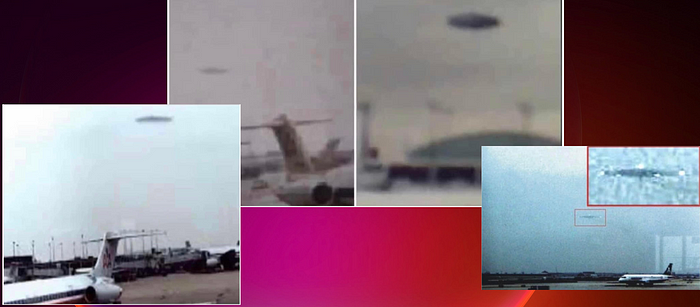Exploring Alien and Human Dynamics: A Sociological Perspective
Written on
Chapter 1: Understanding UFOs and Their Impact
The topic of UFOs often stirs more questions than answers, leaving many perplexed. It's not the existence of these phenomena that troubles individuals; rather, it's the numerous unresolved queries they generate.
Section 1.1: The Nature of UFO Discussions
Engaging in conversations about UFOs often leads to discussions surrounding conspiracies. My skepticism about human behavior, possibly stemming from my sociology background, suggests that societal structures are deeply entrenched. Despite sophisticated legal frameworks, societal inequalities persist, influencing how we perceive UFOs. Do they signify a benefit or a potential danger?
In the infamous 2006 Chicago O'Hare incident, witnesses reported a UFO that was later dismissed by the FAA as weather-related. The implications of such sightings challenge our understanding of authority and knowledge.
Section 1.2: The O'Hare Sighting and Its Ramifications
The O'Hare incident raises significant concerns. If credible evidence were presented, would it alter our willingness to fly? The fear of an encounter could deter many from air travel altogether.
In contrast, UFOs appear to operate with a level of intelligence far beyond human capabilities. Their ability to navigate and avoid aircraft suggests a form of advanced technology that remains beyond our reach.
Chapter 2: The Alien Abduction Phenomenon
The topic of alien abductions often elicits mixed feelings. While some believe that aliens might have benevolent intentions, the history of abductions points towards a more complex reality, potentially involving long-term reproductive agendas.
Section 2.1: The Decline of Human Fertility
Recent alarming trends from the World Health Organization indicate a significant decline in global sperm counts, raising concerns about future human reproduction. The causes remain ambiguous—ranging from environmental toxins to hormonal treatments.
This decline introduces an intriguing hypothesis: could future generations be traveling back in time to ensure their survival by altering the past? This theory offers a sense of reassurance regarding the notion of abductions.
Section 2.2: The Messianic Hope in Religions
Three major world religions share a common theme of awaiting a savior. What if this expectation is linked to time-traveling humans or aliens? Insights from government remote viewing projects hint that humans may have originated from Mars, suggesting a history intertwined with our extraterrestrial counterparts.
Chapter 3: The Quest for Immortality
Professor Carr suggests that the secrecy surrounding UFOs may not stem from military concerns but rather from the pursuit of immortality.

One incident involved a UFO crash at Wright-Patterson Air Force Base. While 11 beings were put into cryogenic preservation, one was autopsied, revealing a brain aged over a century despite a youthful appearance. This suggests advanced biological practices that could offer humanity a path toward longevity.
Section 3.1: The Societal Implications of Alien Integration
If aliens possess the means to extend human life significantly, societal dynamics would shift dramatically. This prospect raises ethical questions about who would access such advancements, echoing themes found in films like "Elysium," where inequality persists even in the face of technological progress.
The integration of alien knowledge could challenge our understanding of relationships, law, and economics. As society grapples with these changes, the core question remains: are we ready to embrace a future where the concept of worthiness is redefined?
In conclusion, the intersection of UFOs, aliens, and human society reveals complex dynamics that challenge our perceptions of authority, existence, and morality. As we navigate these discussions, it becomes clear that the true issue may not solely revolve around extraterrestrial encounters but also our ability to evolve as a compassionate society.